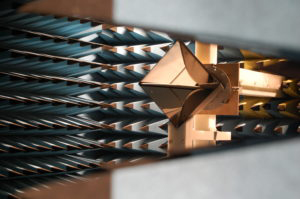7layers has extended its scope of LoRa certification services with new LoRa RF antenna performance requirements. LoRaWAN, a low-power wireless network protocol for Internet of Things (IoT) devices and services, is based on an open industry standard called LoRa, which is managed and controlled by the LoRa Alliance.
Generally speaking, IoT services depend heavily on reliable connectivity, since the loss of a radio connection can lead to the interruption of an IoT service and disappointed users. Eventually it may even put the whole business case of an IoT services provider at risk. Therefore, it is very important that all wireless components in an IoT service system meet the expected performance criteria and secure the dependable transmission of data.
To achieve this, the LoRa Alliance has been active in developing a new RF antenna performance test specification in addition to the LoRa core specification. 7layers has been a member of this activity group for several months and finally demonstrated compliance to the new RF specifications by testing several appropriate reference devices. Again, 7layers is one of the first consulting, engineering and testing providers to offer a new LoRa service to interested stakeholders such as connectivity providers, service providers and LoRa end-device manufacturers.
“We expect that by expanding the LoRa Alliance certification scope in this manner, the whole LoRa ECO system will benefit long term”, explained Thomas Jaeger, Director of Global Business Developments and Innovations at 7layers, “and we are very proud to be once again in the first row of providers of new innovative LoRa services solutions.”
7layers, an experienced provider of wireless engineering, test and certification services is a Contributor member of the LoRa Alliance, authorized to provide not only LoRa Alliance certification services but ideally combines this with IoT-services support, RF consulting and LoRa test set-up developments.

